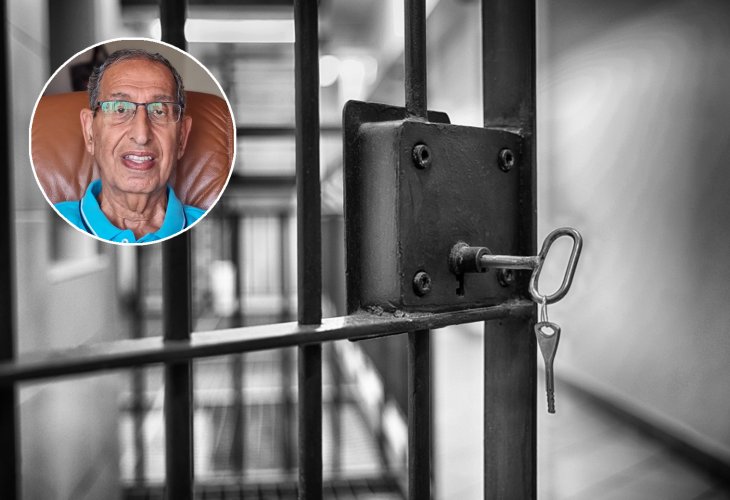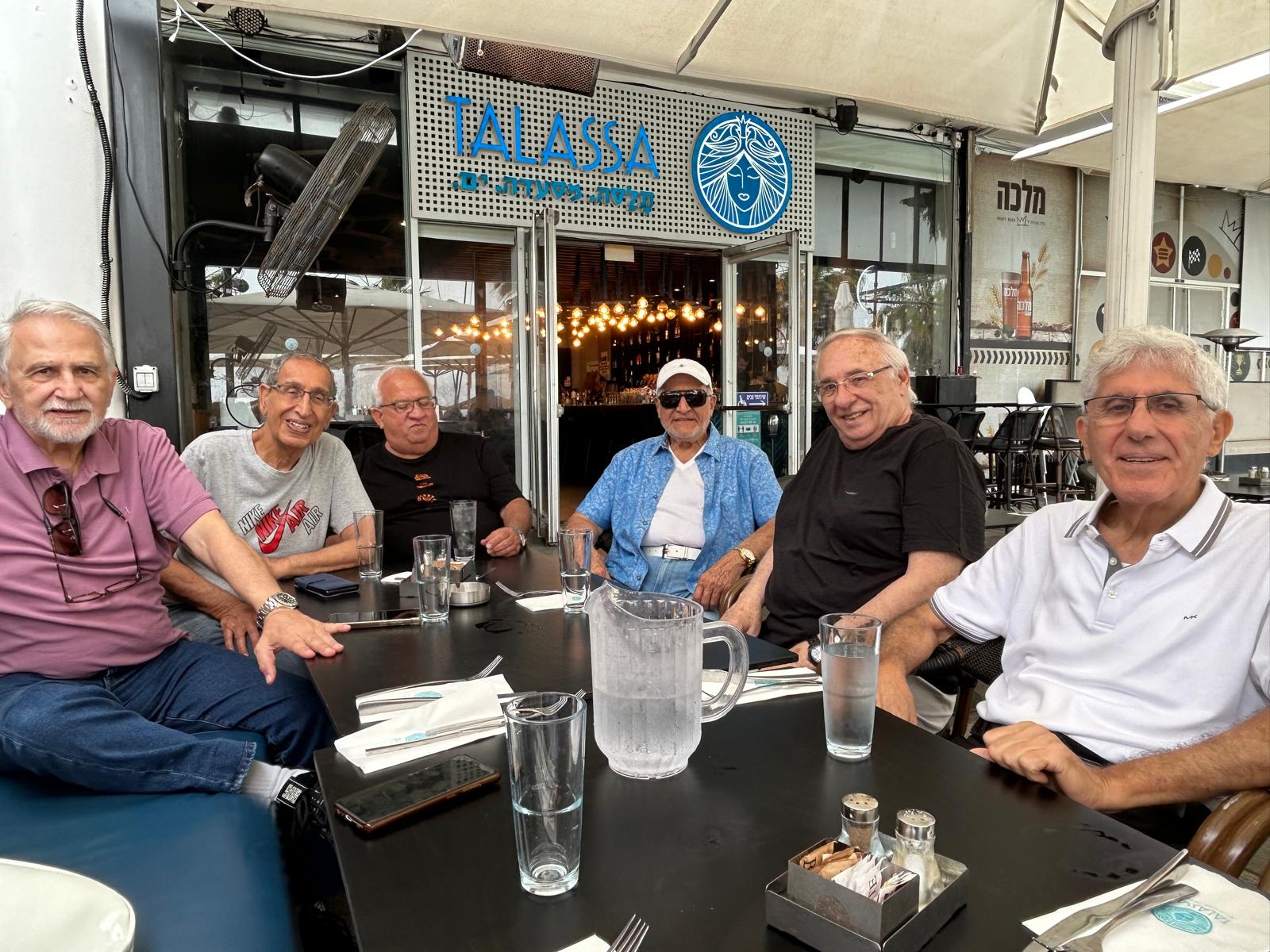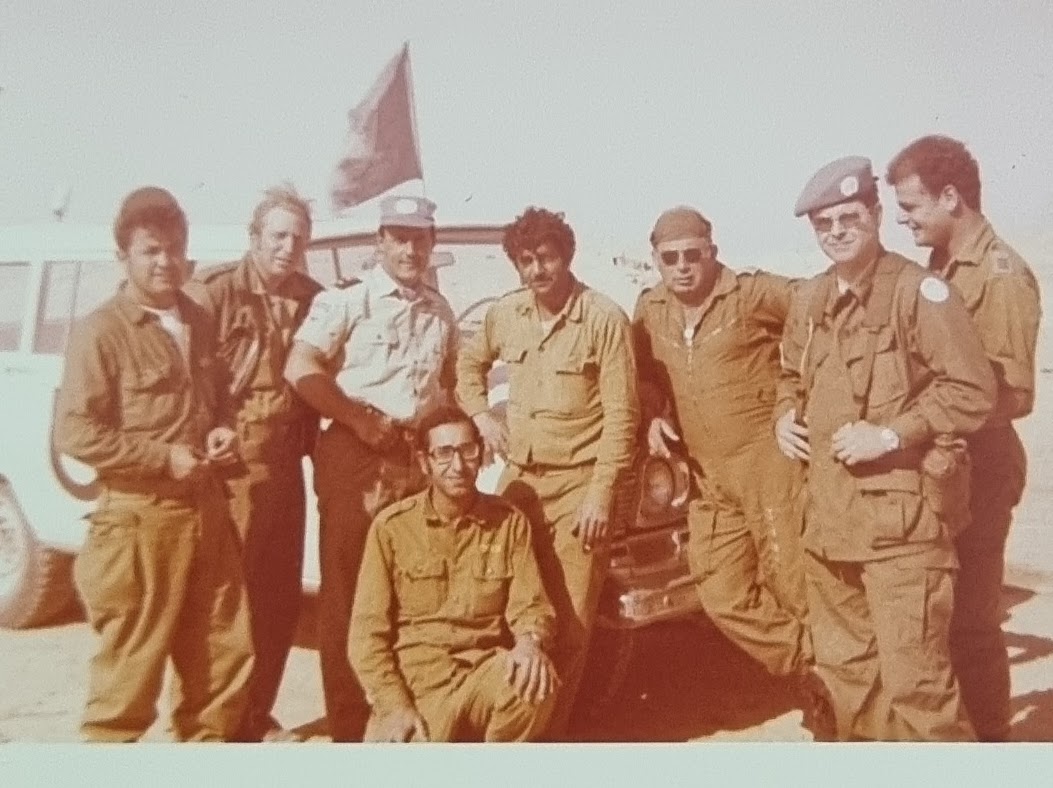A Zionist Prisoner in Egypt: The Longest Five Minutes of My Life
In an exclusive interview, Ovadia Yerushalmi recounts the torment and abuse he endured in an Egyptian detention center until his personal exodus.
 Inset: Ovadia Yerushalmi (Background photo: Shutterstock)
Inset: Ovadia Yerushalmi (Background photo: Shutterstock)Ovadia Yerushalmi was at home in Cairo when loud knocks almost broke his door. He folded his newspaper, got up from his chair, and fearfully peeked through the peephole. Two armed agents from Egyptian intelligence were waiting outside.
From the moment he opened the door until he was expelled from Egypt in 1969, Yerushalmi faced two continuous years of torture and abuse. He was thrown into Abu Zaabal prison, one of Egypt's most brutal incarceration facilities, and, along with other prisoners, crammed into a small, foul-smelling cell for days and nights.
Welcome to Egypt, Gamal Abdel Nasser-style. One of the distinct features characterizing the rule of the Egyptian president was his cruel treatment of Jewish citizens. Yerushalmi's story is, in a small-scale version, the story of the Jews in Egypt during that dark period.
"I Studied with Nasser's Daughter in Class"
Yerushalmi, now 79 and living in Holon, was born in Cairo. "Egyptian Jewry was one of the oldest Jewish communities," he shares in an exclusive interview. "The community thrived and integrated into society and commerce until the eve of Israel's establishment—after which everything changed."
Yerushalmi studied at the American University in Cairo. "Mona, President Nasser's daughter, was in my class," he recalls. "We exchanged only greetings, nothing more. After her father declared a blockade on the Straits of Tiran in 1967, leading to the Six-Day War, I openly distanced myself from her. That might be why I was the only one in my family arrested."
When the war broke out, the Egyptian regime launched a wave of arrests among the country's Jews. Yerushalmi will never forget the morning he was detained: "It was 10 AM when two agents knocked on our door. At that time, I was only with my mother at home. They asked me to accompany them to the police station for a matter regarding my ID card. My mother feared for my fate and wanted to organize a bag with clothes and food, but they reassured her, saying there was no need, as 'it's just a matter of five minutes, and he'll be back.' That's what they told all the Jews they arrested. Within three days, about 350 Jews were detained."
Where did they take you?
"The intelligence agents brought me to the police station, where the chief officer began interrogating me. He asked countless questions about me and the district's Jews, trying to extract incriminating information. As he questioned me, he lit a cigarette and told me: 'By the time I'm done smoking, the Egyptian army will be in Tel Aviv.' I was in complete shock," Yerushalmi describes.
"After three days at the local station, I was brutally handcuffed and loaded with other Jews into an open truck. The driver sped off toward an unknown destination. When I asked the officer where we were heading, he answered: 'You're going to be cannon fodder for the Suez Canal.' All the Jews started trembling with fear and cried out 'Shema Yisrael.' These are moments I will never forget."
After a long and exhausting journey, the truck stopped at the entrance to the Abu Zaabal detention center on the outskirts of Cairo. "Nasser sent us for horrific torture without trial, just for being Jewish. We were thrown, 72 Jews, into a cell no larger than 30 centimeters square. The overcrowding was awful. Every night, we had to fold our legs to lie down and sleep."
 Yerushalmi (second from left) in a reunion with fellow prisoners in Egypt
Yerushalmi (second from left) in a reunion with fellow prisoners in Egypt Did your families know where you were?
"For the first month, they had no idea what was happening to us or where we had disappeared. During that time, we had to manage with the only set of clothes we arrived in and without any hygiene or toiletries. Regarding medicines and doctors—there was nothing to speak of. We asked the detention officers to bring chairs at least for the elderly among us, but they refused. They were cruel and vindictive, but Officer Omar was the worst. We called him Hitler. He promised us many times that soon a Red Cross or UN representative would visit us, but no one ever came."
Can you go back to the tortures you experienced in the facility?
"I'd rather not recount everything," he says with a tremble suddenly in his voice, suggesting the severe trauma left by the abuse. "The officers would beat us mercilessly with their belts," he recalls after a long silence. "Sometimes they spread sand on the floor and forced us to crawl on it like snakes. The pain was intense, and many elderly collapsed."
Were you given adequate meals?
"Not at all," Yerushalmi responds emphatically. "The food was terrible. Every morning they tossed us a fava bean stew, and at noon some cheese that was so sour it was inedible. Once every few days, they'd throw a piece of meat that not even a dog would approach. But we had no choice; we ate everything just to survive."
Yerushalmi recounts how Officer Omar would call up several inmates daily for brutal interrogation. "One day, he grabbed me and asked where I studied. I told him I attended the American University in Cairo, and immediately after, I got the beating of my life. He suspected I was an American spy sent to Egypt."
Among the Jewish detainees at Abu Zaabal was also the chief rabbi of Alexandria, Rabbi Yaakov Nefusi of blessed memory. "The officers shaved his beard and beat him severely," Yerushalmi painfully describes. "They didn't realize he was the chief rabbi of Alexandria. It took them several days to discover they had made a big mistake."
What happened when they found out?
"They released him, but not before warning him that if he said a word about what he and the Jews in detention had endured, he would be arrested again."
According to Yerushalmi, detention officers did not restrict them religiously. "However, we didn't have prayer books. A few of us remembered almost the entire prayer by heart, and the rest joined them daily. The lengthy detention led even those who hadn't been religious before to want to embrace their faith. They wept with emotion during prayer."
Regarding observing Shabbat, were you able to keep it?
"We had no calendar or clock, so we didn't know what day it was or the time. The intelligence agents also arrested Muslim Brotherhood activists and detained them a floor below us, but they received a daily newspaper. The shared fate created a bond between us, so they read the newspaper aloud, including the date, allowing us to know what day it was and prepare for Shabbat."
"I will never forget how when we reached the 'Shema Yisrael' prayer each day, we said 'Israel' softly. We feared the officers might think we were calling on the State of Israel to save us, which would make them torture us more. Two Jewish prisoners were especially tormented: one had the first name Israel, and the other's last name was Dayan—like the then Minister of Defense Moshe Dayan."
Silent Israel
In an exchange deal following the Six-Day War, Israel released 5,500 Egyptian prisoners in return for the release of IDF captives. Other released captives included members of the "La Affair"—Jews arrested in a failed operation by Israeli intelligence in Egypt in the early 1950s, known as the 'Bad Business.' "Israel took care of everyone but us," Yerushalmi says painfully. "They forgot about us and didn't work to free us. Then Defense Minister Moshe Dayan declared there was no connection between the Israeli POWs and the detained Egyptian Jews, so no political effort was made to release us."
"In contrast, many foreign entities did intervene, but not for everyone," he emphasizes. "Foreign nations pressured Nasser to release detained Jews with foreign citizenship, and the UN's refugee representative worked to free the Jewish detainees without citizenship."
And what about Jewish citizens with Egyptian nationality?
"Nasser declared they were Egyptian citizens, and the UN had no right to intervene. We rotted in detention for three straight years and were released only due to French intervention. The hero of the deal was Spain's then ambassador to Egypt, Angel Sagaz, who bypassed the Spanish Foreign Ministry and issued hundreds of Spanish passports to Jewish detainees and their families."
Upon his surprising release, Yerushalmi fled to Cairo's airport, where he met his parents. "I planned to fly to Paris and then migrate to the U.S. The Jewish community in Paris welcomed me warmly and hosted me in a hotel for many days. During this time, I started planning my move to the U.S., but just before I did, the Jewish Agency sent a representative to Paris to bring the Egyptian refugees to Israel. I met with the representative, listened to his talk, and changed all my plans. Those were emotional moments when I decided not to move to the U.S. but to make aliyah."
"Returning to Egypt with Proud Israeli Identity"
Yerushalmi remembers every moment of his personal exodus from Egypt. He recalls landing at Ben Gurion Airport, adjusting to life in Bat Yam, and especially serving in the army during the Yom Kippur War. "I was stationed by the Suez Canal. If the Egyptian army's soldiers had caught me, they would have finished me on the spot."
 Yerushalmi (sitting) with UN ambassadors during the Yom Kippur War
Yerushalmi (sitting) with UN ambassadors during the Yom Kippur WarAnd there's something else he remembers: returning to Egypt, this time as head of the economy desk at the Israeli Arabic-language television channel. "In the early eighties, I was sent to Egypt to cover the international book fair in Cairo," he concludes. "It was a mending experience to return to Egypt proudly with an Israeli passport. Not as a refugee, not as a detainee, but as a citizen of the State of Israel."

